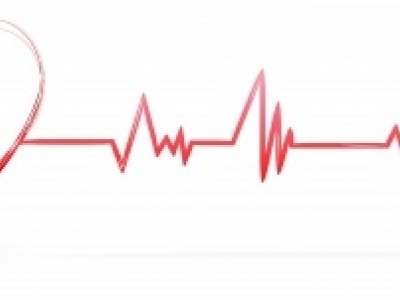All about Cholesterol

Cholesterol is an organic compound, a fatty substance, which is found naturally in our body. An excessive level of cholesterol in the blood is called hypercholesterolemia. Cholesterol has many roles, including:
Creation of hormones such as cortisol and sex hormones estrogen and testosterone. Essential to the growth of the myelin membrane, lipid mantle of nerve cells.
Importance in creating bile and vitamin D.
But still, excess cholesterol can cause diseases such as arteriosclerosis and heart disease.
Cholesterol reaches to the organs through the bloodstream and has a crucial role in heart and vascular diseases.
There are two types of cholesterol the HDL and the LDL:
LDL
LDL leads the cholesterol from the liver to other tissues of the body, known as the "bad cholesterol" because of his tendency to sink to the blood vessel walls.
HDL
HDL called as "good cholesterol" because it helps in clearance of excess cholesterol. As much as the ratio LDL / HDL in the blood is higher, the risk of getting heart and blood vessels disease is growing. Increased activity of LDL may also cause cholesterol sediments on the walls of blood vessels and gradually develops atherosclerosis and various heart diseases.
What affects our cholesterol levels?
Diet - Saturated fats and cholesterol from the food that we eat may increase cholesterol levels.

Weight - Overweight is a risk factor for heart disease itself and may affect cholesterol levels.
Physical activity – Regular activity may lower LDL levels and raise HDL levels, the recommendation is to try to get to 30 minutes of exercise almost every day.
Age - With a rise in years cholesterol levels tend to rise.
Diabetes - Arteriosclerotic heart disease risk due to an increase in LDL, higher in people with diabetes. Because of the risk of diabetes, therapeutic aim in these patients is to get to lower cholesterol levels than recommended for general population.
Inheritance - Genetic influence is mainly on cholesterol that produced by the body.
Medications and medical conditions - Birth control pills may raise blood cholesterol levels. Also hypo-parathyroidism and pregnancy can raise cholesterol.
So what's all the fuss because of cholesterol?
One out of three adults suffers from high cholesterol. According to the World Health Organization (WHO) high cholesterol linked to more than 50% of cases of coronary heart disease and according to Israeli reports, coronary heart diseases account for more than 60% of the causes of morbidity and mortality in Israel.
The first way to deal with high cholesterol based on lifestyle changes: diet and physical activity.
What should you do if you want to reduce cholesterol?
The way to lower cholesterol levels begins in changing lifestyle, healthy and proper diet, physical activity and stress reduction. Primary goal is also lowering levels of LDL and raising HDL levels.
Diet– Consume foods low in cholesterol. Recommendation of the American Heart Association is to limit daily cholesterol intake to less than 300 mg and in cases of heart disease to less than 200 mg. Reduce fat intake to 30% of total daily calorie intake, choose consumption of an unsaturated fat instead of saturated fat, add to your menu foods rich with fiber, phytosterols and antioxidants.
Quit smoking - Smoking reduces levels of HDL ("good cholesterol").
Physical activity - Increases levels of HDL, helps maintain weight and reduce the risk of diseases such as diabetes and hypertension.
Stress reductionand positive thinking.
Medications - in some cases, drug therapy is required to reduce cholesterol levels (consult your physician).
The Power of Nutrition
These foods are highly recommended for eating to maintain a healthy lifestyle and lowering cholesterol levels:
Fruits and vegetables - Eat more vegetables, fruits, legumes and whole grains. Fruits and vegetables that are particularly recommended: leafy vegetables, artichokes, celery, carrots, sweet potatoes, pumpkin, spinach, sprouts, broccoli, cabbage, cauliflower, red pepper, pomegranate, grapefruit, apple, berries and black grapes.

Nutritional fibers - Increased consumption of nutritional fibers: oats, legumes boiled barley, cornmeal and eggplant.
Healthy Fat - Reduce consumption of saturated fats and Trans fatty acids. When you add fat, try to choose monounsaturated fats like olive oil, flaxseed oil or cold-pressed canola, walnuts and almonds, avocado and tehina. Reduce intake of animal fat, Trans fatty acids and intake of fats rich in omega 6.
Omega 3 - Replace two meat dishes with deep-sea fish rich in omega-3 fatty acids (salmon, herring, tuna, halibut, and mackerel).
Phytosterols Addition - Eat foods containing phytosterols: avocado, seeds, nuts, sesame seeds, tahini and vegetable oils.
Garlic - Try to spice up your food with a lot of fresh garlic, the active ingredient, allicin, is effective in reducing cholesterol and triglycerides.
Reduce salt intake and processed products - Helps lower blood pressure and fluid retention.
Diversity - Eat a variety of foods, also chose vegetable protein and soy protein - tofu, soy beans, soy products, beans, chickpeas, peas, lentils, protein which source from chicken and fish meat.
Recommended grocery list for reducing cholesterol levels
Meat and fish - Prefer chicken and turkey without skin (remove the skin before cooking), lean beef, low fat pastrami, tuna, herring, salmon, mackerel, cod, halibut, sardines, trout, bass. These products contain less saturated fats and cholesterol. The fish are also rich in omega 3 fatty acids and recommended for eating at least 2-3 times a week.
Decrease your intake of internal organs like liver, heart, kidneys, etc., fatty meat, lamb, goose, duck, bought minced meat, sausages, hot dogs, burgers, kebabs, fish eggs and Nile perch. Fats in these products contain cholesterol and saturated fats.
Cerealsand legumes - Prefer whole grain as a source of nutritious fibers and try to eat frequently legumes which constitute a source of plant-based protein that rich with soluble fibers. For example chickpeas, peas, lentils, beans, various soy products (soybeans, tofu, soy flakes, soy meat substitute products up to 5% fat), whole grain breads or rye, durum pasta or whole wheat pasta, brown rice, quinoa , buckwheat, oats, burgul, cornmeal, wheat bran and fiber-fortified cereals.
Decrease consumption of prepared baked goods that contain hydrogenated oils of Trans type, such as: croissants, cakes, cookies, wafers, pastry, pizza, crackers and soup almonds.
Eggs - You can eat 3-4 eggs a week, the eggs contain lecithin which helps actually raise the level of good cholesterol. Beyond this amount you can eat egg whites without the yolks that are rich in cholesterol.
Dairy products - Select products that are not are high in cholesterol and saturated fat.
You can drink milk up to 3% fat and eat cheese up to 5%, dairy desserts and yogurt up to 3%, ice cream up to 2%, hard and melted cheese up to 9%.
Recommended to reduce high-fat products such as butter, cream, ice cream, sour cream, milk shakes, whole milk, hard salty and melted fat cheese.
Fruits and vegetables - You can eat all kinds of fruits and vegetables with peel, fresh, cooked, dried or frozen. Especially recommended: garlic, onions, cabbage, cauliflower, carrots, broccoli, citrus and apples that are rich in soluble nutritious fibers, vitamins and minerals.
Try to avoid coconut that contains saturated fat.
Oil - Recommended oils for consumption are olive oil and canola oil that are rich in monounsaturated fats.
Reduce intake of vegetable oils rich in omega-6 (encouraging the creation of inflammation and easily oxidized) - soybean oil, safflower oil, sunflower oil and corn oil.
Cholesterol - Common Myths
High cholesterol is always requies treatment - Wrong
There are cases, particularly for genetic reasons in which good cholesterol can bevery high with normal level sof bad cholesterol. The result is high total blood cholesterol, but it does not indicate a problem that requires treatment. So if total blood cholesterol is high, LDL-check should be done to make sure it is the cause that raises cholesterol levels.
Product stamped "no cholesterol" does not affect the cholesterol level - Wrong
Any product that contains saturated fat or hydrogenated fat raises blood cholesterol levels regardless of cholesterol content and therefore it is only a marketing statement and you should check the label to see what the product contains.
I take statins, there is no need for nutritional therapy - Wrong
Cholesterol-lowering diet is important also for people taking medications, diet also affects other risk factors for heart disease and help further reduction in cholesterol.
It is impossible not to mention exercise
Aerobic exercise (walking, jogging, cycling, etc.) helps lower cholesterol levels, reducing the LDL and the best means to raise HDL levels. Even strength training (resistance, weight, fitness machines) play an important role in influencing the metabolism of fats. Recommended to switch to an active lifestyle and try to integrate daily physical activity, if you do not have a continuous training strength you can split it to two short training sessions a day.
Activity also helps improve lipid levels, reduce the circumference, reduce insulin resistance, to feel better and healthier, to lose weight and reduce cardiac risk.

Nutritional components that reduce cholesterol levels
Phytosterols
Plant phytosterols are found in small amounts in grains, vegetables, fruits, legumes, nuts, seeds and soy products. Thanks to their ability to reduce cholesterol levels, food industry started adding them to foods such as margarine, cereals, nutrition bars and dietary supplements like Phyto-Guard Teva and Nosterol Altman. Eating foods containing plant sterols and stanols is an easy way to reduce LDL levels and also reduce the risk of heart disease. The FDA and the Israeli Ministry of Health also approved the indication regarding Phytosterol's activity in reducing cholesterol levels and their recommendation is to take 2 grams of the phytosterols per day.
Omega 3
Omega-3 are essential fatty acids with a number of roles in the heart and blood vessels activity. Omega-3 also essential for balance blood pressure and body temperature, blood clotting mechanism, the production of hormones and more.
Coenzyme Q10
Coenzyme Q-10 is essential for process of cellular energy production. Q-10 is the most effective antioxydant that reduces oxidation of LDL and is also effective in reducing blood pressure. Statins reduce the levels of coenzyme Q-10 in the body. Supplement of coenzyme Q10 helps reduce the shortage.
Two Israeli companies, Teva and Altman, world leaders in pharmaceuticals and dietary supplements, are marketing special nutritional supplements contain a combination of phytosterols and omega-3 that have been proven effective lowering LDL and lowering the general level of cholesterol. the pruducts are Phyto-Guard Teva and Nosterol Altman.







